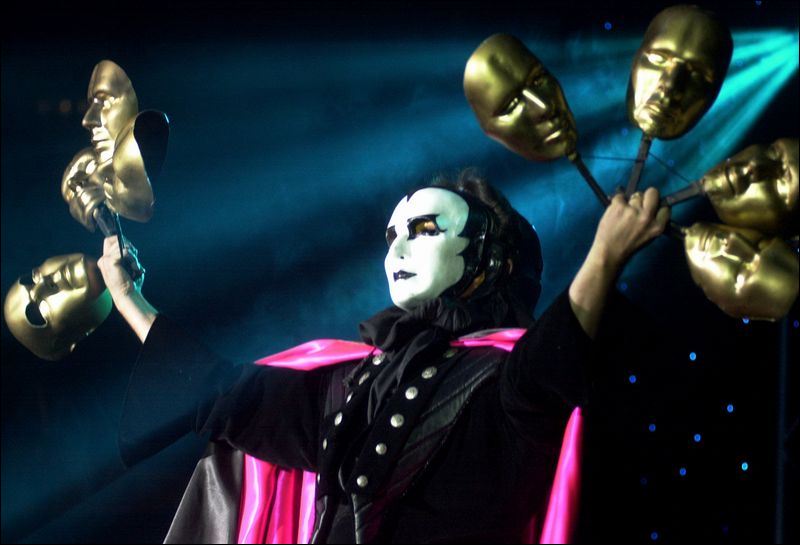Am I the only one who finds "God" to be baffling?
Why don't Christian women seem to follow the advice of 1 Timothy 2:12?
I have read much on this one verse and much has been made of this one verse. It is highly contraversial and not just for the obvious reasons. This verse refers to women being quite, not teaching, and not having authority over men. I will now begin a typed rant from everything I can come up with off the top of my head without giving references. Supposedly, this was written by Saint Paul who was a great egalitarian and write that there is no slave or free or man or women for all are equals in the church. Yet has also demanded female subserviance. He has reconized the validity of female teachers and preachers and ordained a few himself, but has also maintained that women be silent and speak and not have authority. This is slightly better understood when it is recognized that all of these different ideas of Pauls were located in different letters with those letters calling for male domination and female subserviance being thought of as being written by someone other then Paul. They were also wriiten at a later date then the earlier egalitarian ones. Paul may have changed his views about gender equality as he aged, his letters to different churches may have contained different ideas suited to those specific churches, or they were written by different authors who wanted a return to the patriarchial dominance that was so characteristic of Rome. Christianity was already weired enough to the surrounding pagan culture, making males dominant would have been a way of making Christianity more acceptable to the surrounding culture of already male centerred religions. these people would have then put the letters under Paul's name as a way of making them more authoritative or because they thought they were writing in line with Paul's thinking. Back to Timothy 2:12, this letter is one of the cotraversial ones that may have been written at a later date or by another person. But what does it mean that women should not teach, should be quiet, and not have authority? There is a greek word here "authenteo" which means to have authority and here it refers to women who should nto have it. The word "authenteo" has very few outside sources during this time period in Rome and the surrounding area and while the denotation "having authority" is always the same, the cannotation is always different ranging from having begign authority, having honorable authority, having stolen authority, having totalitarian authority, having malign authority, and whatever else adjective can be placed near authority. There is not enough context in the verse to show what the cannotation should be and little is known of the recipiant of the letter to show why this order is being sent. The verse may also not say" women shouldn't teach or have authority", but may say "women shouldn't teach authoritatively, should teach other's authority, shouldn't teach with authority" and so on. I've been ranting too long on this without reference. Wikipedia has an entire wiki page on this ( https://en.wikipedia.org/wiki/1_Timothy_2:12 )
Here you will find FAR more on this debate. It goes much deeper.
You can rant all you want. But, evangelical Christianity and certainly fundamental Islam treat women as second class citizens at best. I have a brother who is an evangelical and he is quite certain women should be subservient to men...
It's very unfortunate that religious texts are subject to debate on interpretations or that some things are claimed to have been taken out of context. You would think that the direct and holy words of a divine entity would have absolutely no ambiguity.
The fact is is that if some parts of the Bible are to be taken literally and at face value, then all of it should. Or none of it should. There's even debate as to what should be taken literally or not. Debate! As if God can't come down and settle the issue himself. 30,000 denominations (each with their own interpretation) can't all be right. This is what is baffling about religion.
The fact is is that if some parts of the Bible are to be taken literally and at face value, then all of it should. Or none of it should. There's even debate as to what should be taken literally or not. Debate! As if God can't come down and settle the issue himself. 30,000 denominations (each with their own interpretation) can't all be right. This is what is baffling about religion.
It's also the reason that all religions are simple superstition from long ago...
But modern religions are simply the present-day forms of belief systems that have evolved over the millenia. It's the same principle as to why it's no longer the 1920s or 1950s in regards to ideas and culture. The earth is so big that as humans spread out from Africa, they split and developed cultures far isolated from each other, and one aspect of culture being their religion and creation myths.
In my country strict evangelical christians have the majority in two or three towns. Once such a town council ordered an archeological survey, because they had a clue there might be something interesting. The archeologist made up a report, claiming that he found relics 10.000 years old.
The town council asked him to correct his report, because it could not be > 6.000 years old, according to the Bible. When he did not, they fired him.
This is a true story. I don't want to mention the country, but could almost be Islamic State.
You cannot expect society to go through the Enlightment, industrial age, computer age, and keep the same opinions, but some are very conservative.
God in the Pantheistic concept I like, though, whether it's true or not.
I have thought about this. The reason that most mythologies develop is because there needs to be a way of effectively communicating ethics and morality into the new generation and stories are the most effective. I have thought about whether today's entertainment serves as a modern form of mythology to instill various values into the hearts of today's youth and populace. Take D.C. and Marvel for instance, both have extensive and complex mythos revolving around good, heroic guys that fight off the evil villains and many comics explore the boundries of morality and ethics such as the government's extreme distrust of superman because he is a super-powerful being despite him also being super-good or the concept of hiding one's identity one performing good acts.
_________________
I am a traditional, non-Roman Catholic feminist married to a Bahá'í. Decide for yourself what that means.
I think there's a reason, why this is effective.
I consider that crime is statistically lower, in inclement weather, and that padlocks would not be effective against a determined intruder. Most trespasses are opportunistic, and last no longer than a flight of fancy.
I think that myths are a form of symbolism or code, which are not intended to be impossible to crack. Underneath the surface, a story teller is allowed moralize, without the impassioned and unintelligent, dissembling the moral of the story.
I think that sensual people are preoccupied with the problem or the antagonists, and, in my experience, never fully grasp the plot.


I think that story telling is intended to be a means of distraction, as much as a means of direction.
Most personalities, public and private, are telling stories.








